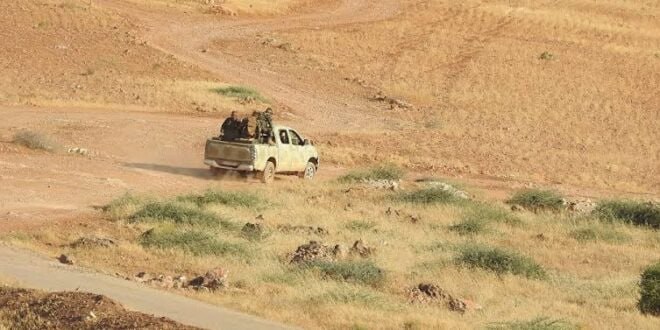Government forces launch anti-ISIS campaign in Syrian Desert
DEIR EZ-ZOR, Syria (North Press) – On Sunday, Syrian government forces, supported by Russian warplanes, have launched a military campaign in the Syrian Desert with the objective of targeting and eliminating sleeper cells of the Islamic State (ISIS).
The Syrian Desert occupies approximately half of Syria’s territory, covering an area of 80,000 square kilometers. It is known for its abundance of valuable resources, including gas fields, oil wells, and phosphates. Before the onset of the war, Syria was ranked fifth in global phosphate production.
A military source from the government forces stated that more than eight regiments of government forces, infantry battalions affiliated with Iran, and the Damascus-linked National Defense Forces (NDF), supported by Russian air cover, have launched a military campaign to pursue ISIS cells following a spike in the extremist organization’s operations against government forces in the Syrian Desert.
The source added that the campaign was initiated from two areas: The first extends from the eastern Homs desert to al-Sukhnah desert, led by Iranian militias; as for the second area, it extends from al-Sukhnah desert to the southern Deir ez-Zor desert, led by government forces.
The source noted that Russian aircraft targeted more than 15 ISIS hideouts in the Syrian Desert that consisted of trenches and caves.
Unlike previous anti-ISIS operations, the source said, this campaign will not end until the complete elimination of the organization’s cells in the Syrian Desert is achieved.
For years, government forces and Iran-backed militias have been conducting campaigns targeting ISIS cells in the Syrian Desert. The desert’s valleys and mountains have provided a favorable environment for ISIS militants to establish hideouts and launch surprise attacks.
On Nov. 26-27 alone, the radical group killed 16 Syrian government soldiers and injured 27 others in the Deir ez-Zor desert.
Despite repeated campaigns, the extremist organization remains heavily present in the Syrian Desert and occasionally claims responsibility for operations against government forces.

